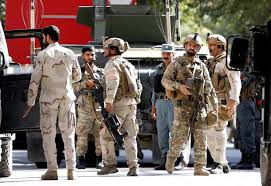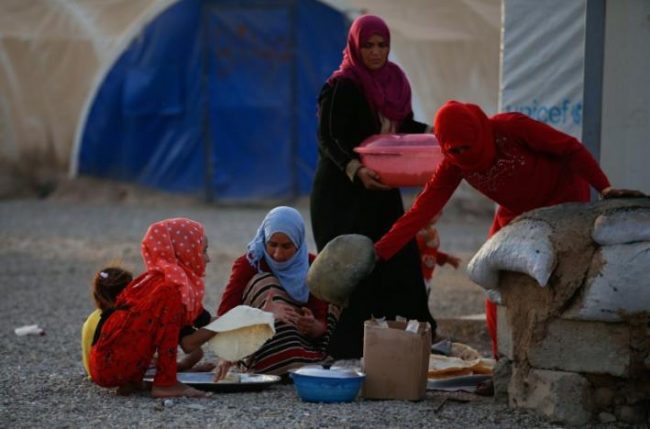Balkan Insight (2 August 2017)
Serbian President Aleksandar Vucic’s proposal for an ‘internal dialogue’ on Kosovo is the latest in a series of similar initiatives – all of which ended with him making the decisions, experts claim.
President Aleksandar Vucic’s recent proposal for an ‘internal dialogue’ about the status of Serbia’s former province of Kosovo is the latest of several initiatives to open up public discussion and reach consensus on major social and political issues, although none of them has ended in success so far, political analysts insist.
Vucic wrote in an article for the daily newspaper Blic last week that the Serbian nation must "stop burying its head in the sand" on the issue of Kosovo and start "an internal dialogue" about it.
"We must try to be realistic, not lose or give away what we have, but not expect to receive what we lost long ago," Vucic said in the article on July 24. He did not offer any concrete proposals of his own.
Economist Milan Kovacevic expressed scepticism’s about Vucic’s words, suggesting that all the Serbian president want to achieve is to "strengthen his own authority".
"I don’t think he intends to have a dialogue now, either. After all, if he’s inviting a dialogue, it would be reasonable for him to state his own opinion," Kovacevic told BIRN.
Boban Stojanovic from the Faculty of Political Science in Belgrade questioned what such a process could achieve as Vucic already has a fixed position on Kosovo’s future.
"I don’t think this dialogue, if it even happens, will have any sort of conclusion," Stojanovic told BIRN.
Stojanovic believes that Vucic is not ready to recognise Kosovo, which declared independence from Serbia in 2008, and so the ‘internal dialogue’ can have no impact on reality.
Lack of consensus
Vucic has launched ‘dialogues’ on several other important issues in the past, only to do nothing more about them or to make the decisions himself.
In March 2014, before that year’s parliamentary elections, Vucic promised to reach a nationwide consensus on the issue of painful economic reforms.
"Our job is to unite Serbia. We don’t want great power, but for the people in Serbia to reach a consensus to make a decent and normal country," Vucic said at the time.
Several months after the elections, in which his Progressive Party won the majority, new Prime Minister Vucic said that the reforms would take place even without a consensus.
A few more months on, the government introduced austerity measures, reducing all pensions and salaries in Serbia’s public sector that were higher than 25,000 dinars (around 210 euros) a month.
The Serbian authorities have also boasted that they have instigated dialogue on social issues, after Vucic met representatives from the European Trade Union Confederation and two Serbian unions in April this year.
However, a recent deal between striking workers from Fiat Chrysler Automobiles in Serbia and their employer, mediated by the government, has been criticised for undermining employment rights.
"We have the opposite of social dialogue. Look at what is happening with all the strikes, and what the state is doing," said Kovacevic.
He cited the example of Gosa, a company whose workers are currently on strike demanding salaries that their employer owes them.
The strike at Gosa recently prompted the president of the Sloga union, Zeljko Veselinovic, to declare the social dialogue in Serbia "meaningless".
"If social dialogue existed, [Vucic] would not have to put out fires by offering [each worker] 60,000 dinars [500 euros]," Veslinovic told regional television station N1, referring to the payouts promised by Vucic.
The lack of public consensus has also been used by Vucic in the past as a reason for inaction on vital issues.
In 2016, Vucic said that the government "doesn’t have the strength" to fight hooliganism in sport – a deeply-rooted problem in Serbia – because there is “no social consensus” to take action.
He never explained who was supposedly against suppressing hooliganism.
Also waiting to be addressed is the issue of making changes to the Serbian constitution, which Vucic also says requires consensus.
The country’s media have speculated for several years that the EU is demanding that Serbia removes or alters the preamble to the country’s constitution, which declares that Kosovo is a part of Serbia.
Stojanovic said that Vucic’s proposed ‘internal dialogue’ might possibly refer to these changes, but he does not believe that the president will dare to seriously address this politically-explosive topic.
"In the next year or two, the only serious discussion to be had could be related to the preamble, but I don’t think that he will have the courage to address the issue," Stojanovic said.
http://www.balkaninsight.com/en/article/serbian-leader-s-dialogue-offer-likely-to-fail-analysts-08-01-2017
No comments yet.
- AMBASSADOR POINTS OUT TWO MAJOR GAPS OF ARMENIAN DIPLOMACY The Caucasus and Turkish-Armenian Relations 02.08.2017
- US VICE PRESIDENT: 'GEORGIA IS OUR MAIN STRATEGIC PARTNER' The Caucasus and Turkish-Armenian Relations 02.08.2017
-
 EMBASSY ATTACK FUELS FEARS ISIS BRINGING IRAQ WAR TO AFGHANISTAN
Asia - Pacific
02.08.2017
EMBASSY ATTACK FUELS FEARS ISIS BRINGING IRAQ WAR TO AFGHANISTAN
Asia - Pacific
02.08.2017
-
 253,000 DISPLACED CIVILIANS RETURN TO MOSUL – MINISTER
Iraq
02.08.2017
253,000 DISPLACED CIVILIANS RETURN TO MOSUL – MINISTER
Iraq
02.08.2017
- ARMAN NAVASARDYAN: US-RF CONTRADICTIONS CHALLENGE ARMENIAN DIPLOMACY The Caucasus and Turkish-Armenian Relations 02.08.2017
-
25.01.2016
THE ARMENIAN QUESTION - BASIC KNOWLEDGE AND DOCUMENTATION -
12.06.2024
THE TRUTH WILL OUT -
27.03.2023
RADİKAL ERMENİ UNSURLARCA GERÇEKLEŞTİRİLEN MEZALİMLER VE VANDALİZM -
17.03.2023
PATRIOTISM PERVERTED -
23.02.2023
MEN ARE LIKE THAT -
03.02.2023
BAKÜ-TİFLİS-CEYHAN BORU HATTININ YAŞANAN TARİHİ -
16.12.2022
INTERNATIONAL SCHOLARS ON THE EVENTS OF 1915 -
07.12.2022
FAKE PHOTOS AND THE ARMENIAN PROPAGANDA -
07.12.2022
ERMENİ PROPAGANDASI VE SAHTE RESİMLER -
01.01.2022
A Letter From Japan - Strategically Mum: The Silence of the Armenians -
01.01.2022
Japonya'dan Bir Mektup - Stratejik Suskunluk: Ermenilerin Sessizliği -
03.06.2020
Anastas Mikoyan: Confessions of an Armenian Bolshevik -
08.04.2020
Sovyet Sonrası Ukrayna’da Devlet, Toplum ve Siyaset - Değişen Dinamikler, Dönüşen Kimlikler -
12.06.2018
Ermeni Sorunuyla İlgili İngiliz Belgeleri (1912-1923) - British Documents on Armenian Question (1912-1923) -
02.12.2016
Turkish-Russian Academics: A Historical Study on the Caucasus -
01.07.2016
Gürcistan'daki Müslüman Topluluklar: Azınlık Hakları, Kimlik, Siyaset -
10.03.2016
Armenian Diaspora: Diaspora, State and the Imagination of the Republic of Armenia -
24.01.2016
ERMENİ SORUNU - TEMEL BİLGİ VE BELGELER (2. BASKI)
-
AVİM Conference Hall 24.01.2023
CONFERENCE TITLED “HUNGARY’S PERSPECTIVES ON THE TURKIC WORLD"









